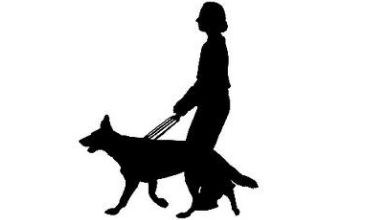Service Dog

Some disabled students may require the assistance of a Service Dog as a Reasonable Accommodation in Trinity, including in areas where animals would not typically be permitted (i.e. Trinity provided residential accommodation).
A “Service Dog” is a generic term for a guide, hearing, or service dog specifically trained to do three or more tasks to mitigate the effects of an individual’s disability. The presence of a dog for protection, personal defence, or comfort does not qualify that dog as an assistance dog. A Service Dog is primarily a working animal, specifically trained to assist a diabled person.
For an animal to be recognised as a Service Dog it must be fully trained, accredited and registered with one of the following:
- Irish Guide Dogs For The Blind
- Dogs For The Disabled (Cork)
- Autism Assistance Dogs Ireland
- Canine Partners (UK)
- Dog A.I.D. (UK)
- Guide Dogs UK
- Hearing Dogs For Deaf People (UK)
- Medical Detection Dogs (UK)
- Support Dogs (UK)
- International Guide Dog Federation
Dogs that are self-trained by their owners will not be considered to have reached the required level of training of a certified, accredited dog and will not meet the definition of a service dog for the purpose of this policy.
The University will have the final decision as to whether an animal is a service dog or not.
Students seeking to bring their Service Dogs to Trinity premises must apply for reasonable accommodation with the Disability Service and provide evidence that their dog is a trained and certified service animal.
